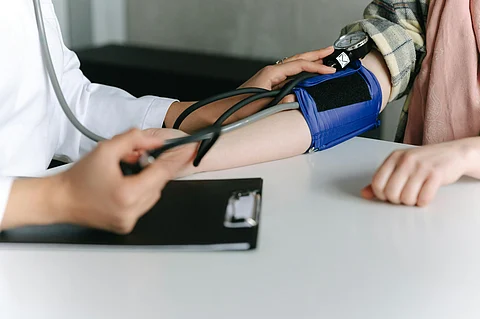High blood pressure (hypertension) is a common condition that affects the body's arteries. It occurs when the force of blood pushing against your artery walls is consistently too high, causing the pressure in your blood vessels to reach dangerous levels (140/90 mmHg or higher). Under such conditions, the heart has to work harder to pump blood, which may lead to serious complications. (1)
However, the majority of people mistakenly interpret hypertension as “high tension,” equating it to increased stress levels in the body.
In a recent video, Dr. Priyanka Sehrawat (MD Medicine, DM Neurology) provides a detailed explanation, debunking myths and uncovering the true meaning of hypertension. She highlights the causes behind the condition and shares impactful advice on managing high blood pressure.


